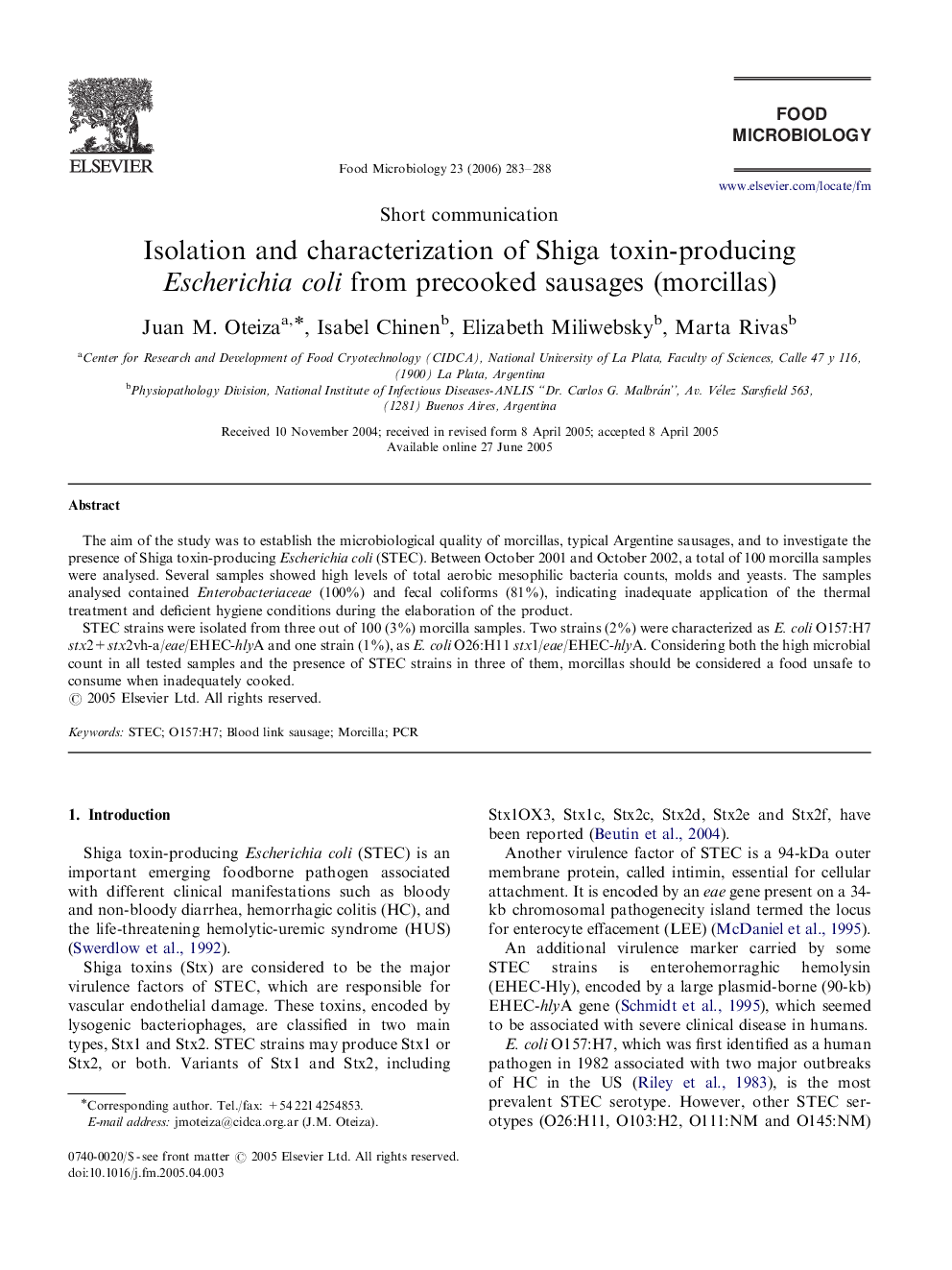| Article ID | Journal | Published Year | Pages | File Type |
|---|---|---|---|---|
| 4364011 | Food Microbiology | 2006 | 6 Pages |
The aim of the study was to establish the microbiological quality of morcillas, typical Argentine sausages, and to investigate the presence of Shiga toxin-producing Escherichia coli (STEC). Between October 2001 and October 2002, a total of 100 morcilla samples were analysed. Several samples showed high levels of total aerobic mesophilic bacteria counts, molds and yeasts. The samples analysed contained Enterobacteriaceae (100%) and fecal coliforms (81%), indicating inadequate application of the thermal treatment and deficient hygiene conditions during the elaboration of the product.STEC strains were isolated from three out of 100 (3%) morcilla samples. Two strains (2%) were characterized as E. coli O157:H7 stx2+stx2vh-a/eae/EHEC-hlyA and one strain (1%), as E. coli O26:H11 stx1/eae/EHEC-hlyA. Considering both the high microbial count in all tested samples and the presence of STEC strains in three of them, morcillas should be considered a food unsafe to consume when inadequately cooked.
